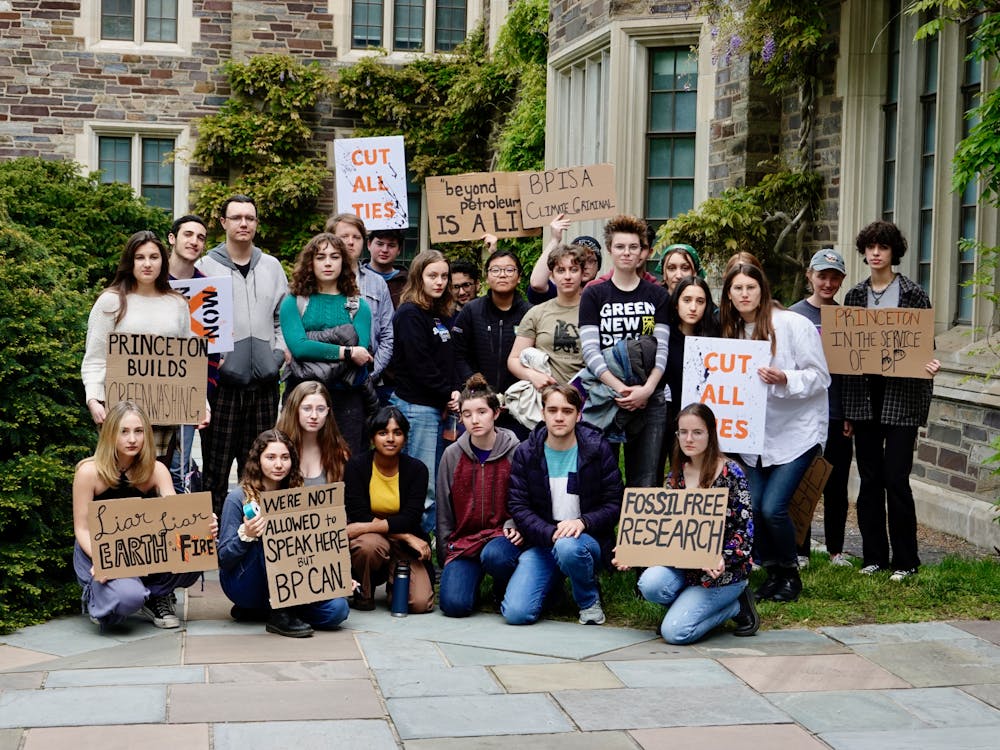I recently learned how to play Cards Against Humanity, and anyone who has ever played the game can probably attest to the perverse nature of the topics that inevitably arise. Many (actually most) of the cards are mildly (or more than mildly) racist, offensive or demeaning. In my particular game, several of the more memorable rounds involved the Three-Fifths Compromise, midgets and plenty of not-so-subtle sexual innuendos, none of which is suitable for print in a respectable publication like this.
And yet, in spite of the obviously offensive nature of the game, we were able to laugh the hardest at some of the most blatantly distasteful rounds. Lo and behold, in the midst of holding back tears, no one called us out for being discriminatory bigots, or for being uncultured philistines who took pleasure in abusing irreverent topics.
On campus over the past few weeks, there has been a lot of talk about the relatively recent movie Dear White People, which, I admit, I have yet to see; but from what I’ve gathered by talking to others (and from reading IMDB), the film employs satire and comedy to discuss racial identity and to highlight the discriminatory racial undertones that still plague our modern society. To me, this seemed similar in nature to Cards Against Humanity. In both the film and the game, players and audience members are able to get a good laugh at the expense of a traditionally taboo topic – whether it be race or some other equally sticky, generally avoided subject. And, while the viewers or the players are having a good laugh, the reality of the problem is also brought to light, albeit in a comical yet nonetheless effective way. After all, how better to spread a memorable message than to have people laugh about it?
In this way, there seems to be an increasingly polarizing effect on our society in general. On one hand, there are people who are overtly willing to express their offensive and bigoted beliefs with the sole purpose of insulting; they want to shock and titillate, and they don’t care about how others feel about it. Case in point: YouTube commenters, or any anonymous Internet user in general, for that matter. On the other hand, the specter of political correctness and the need to appear as deferential as possible has, for most of us, encouraged us to watch and inhibit our more extreme sentiments in favor of more watered-down but safer expressions and statements. We say “African American” instead of black, “Native American” instead of Indian; we are not supposed comment on people’s weights, ages, appearances, habits or beliefs; and so on and so forth. While this may help us avoid conflict, it also hampers honest conversation of the topics that are suppressed.
In today’s world, it can be difficult to distinguish when we cross the border between being funny and being mean. It’s hard to tell which topics we can safely make fun of, and which ones we should avoid at the risk of appearing insensitive and cruel. But as the hilarious game of Cards Against Humanity showed me, and, I suspect, as the film showed many others, humor is a great medium through which to broach typically distasteful topics. What’s more, humor is ubiquitous – there is something (probably offensive but nonetheless funny) to say about everyone; about every culture, every race, every religion and every creed. And when we try to avoid or isolate specific groups of people to protect them, we may be acting counterproductively. Instead of moving them out of harm’s way, we may be hurting them more by isolating them, rendering them untouchable, and as a result, unable to bring to light the individuality (and, yes, the funniness) of the differences that make them so unique. If humor is a tool, it is one that should be used freely by everyone, against everyone – when that becomes realized, humor will cease to be the oftentimes awkward and offensive concept it is today.
Dialogue, debate and discussion are all certainly important ways in which we can strive to identify and ameliorate the problems that face our world. But maybe it wouldn’t be such a bad idea to throw in a stand-up comedy routine along the way.
Jason Choe is a sophomorefrom Rancho Palos Verdes, Calif. He can be reached at jasonjc@princeton.edu.








